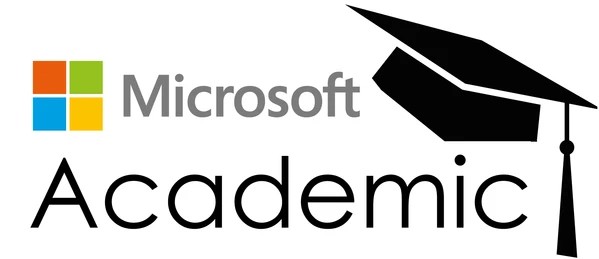One of the essential aspects of being a college or university student is conducting research and creating a variety of written assignments on a regular basis. Unfortunately, many professors fail to explain what goes into proper research and how to tell whether or not an article is worth using in your paper.
Because of this, many students tend to spend too much time on this task and end up with less than credible resources in their bibliography. However, this doesn’t have to be the case.
Luckily for all of us, academic knowledge is now more accessible than ever, and Google and Microsoft have developed search engines for scientific publications, which are loved not only by students but also by a great number of authors and researchers. So, let’s go over what they entail and what are their pros and cons.
Google Scholar
Google Scholar is Googles specialized search engine for scientific publications, case studies, patents, and law cases which saves you the the hassle of sorting through unrelated web pages. One of the great advantages of the resource is that it also automatically searches your school’s online library, which means you won’t have to go over the same articles twice.
More than that, you can always refine your search results to show articles from a specific time frame, which means you can include only the most recent and relevant findings in your writing. The Google Scholar interface is also pretty simple and self-explanatory, much like Google itself, which means you don’t need any special training or assistance to find exactly what you need.
Many students tend to struggle with making proper entrances to their list of references, which is also where Google Scholar will be useful. For every article, you can find not only similar or related articles but also citations in a variety of formats.
The variety of entries in Google Scholar search results is impressive because it does not only include articles and patents but also conference proceedings, which can be useful for your personal research and a better understanding of the topic. Nevertheless, the results often vary in quality, and it is up to you to decide what is worth using. Overall, Google Scholar is a great tool to use in your research as a college student; while it has several limitations, it can become a valuable part of your work.
Microsoft Academic
Microsoft Academic is similar to Google Scholar in regard to being a search tool designed specifically for scholarly entries. At the moment, the resource includes almost 245 million publications on a vast variety of topics from top authors and research institutions worldwide. Yes, that’s a lot, which means you will probably find what you’re looking for.
One of the best features of Microsoft Academic is the use of semantic search, which means that the search engine does not blindly match your requested keywords to content but rather focuses on their meaning and a wider picture.
Another unquestionable advantage of Microsoft Academics is that you can search top authors, institutions, journals, and conferences in every field, meaning you can always be sure that you receive only the best results.
It can also help you with finding the first few entries and interesting topics when you’re not quite sure what you’re looking for. The Microsoft Academics search engine allows students to sort through the most credible and useful publications, which is definitely useful in college.
Nevertheless, there are certain limitations to using MAS in your research. Because of the semantic search, you will probably have to refine your search entry to find publications on the exact topic you’re looking for. Citations are not always available and are sometimes inaccurate, which means you will have to adjust them depending on your requirements. All in all, Microsoft Academic is one of the essential sources for every college student to make the most out of your research and writing.
Regardless of how hard you think it may be to conduct proper research for a college assignment, there are great resources at your fingertips. Although neither Google Scholar nor Microsoft Academics are comprehensive, you can easily make them the basis of your bibliography. Both of these search tools are comparable to Web of Science in the variety of publications available; however, they also offer a wider number of fields of study, which can be useful for those majoring in humanities.
I always recommend that students focus on high-quality scholarly references rather than on their number on your bibliography page. Hopefully, this article could help you find some inspiration for improving your research and academic performance overall with the use of these simple and accessible tools.
About the author
Timothy Lyall works as editor for PapersOwl. He is involved in editing and writing content for various educational blogs and resources. Throughout his career, Timothy worked in a number of online and offline publications, co-wrote a few non-fictional books, and edited a variety of works. Now, his purpose is to provide students with access to high-quality educational tools and skills to improve their academic performance. Timothy focuses on tutoring of college and university students interested in advancing their writing and research skills.
Last Updated on February 14, 2022 8:22 pm CET by Markus Kasanmascheff




